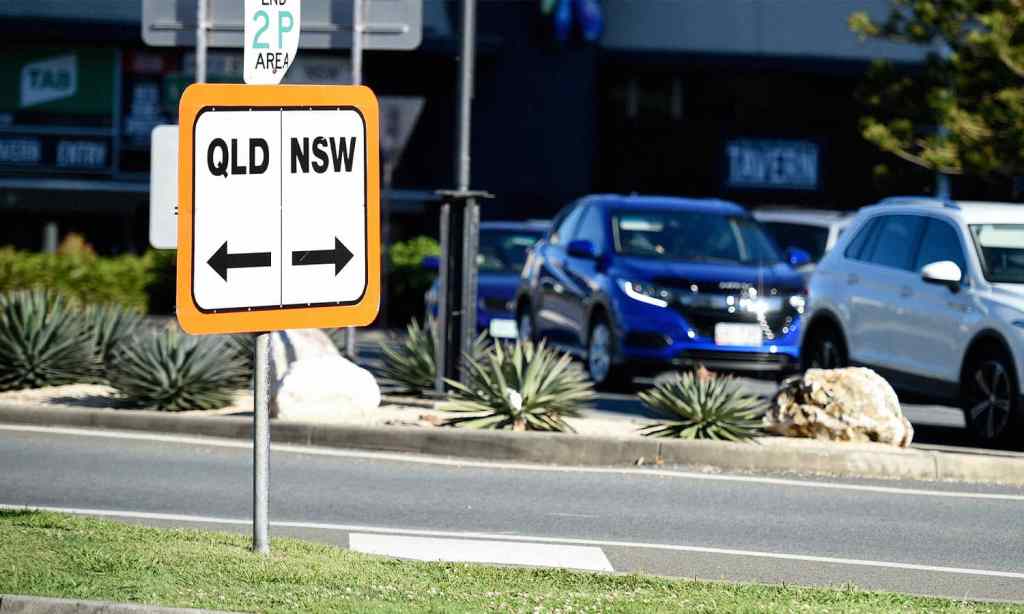Queensland has opened its borders after five months of closures following Premier Annastacia Palaszczuk’s announcement last week that borders would reopen earlier than previously anticipated due to high vaccination rates.
The state has passed its 80% double-vaccinated target amongst the eligible over-16 population and is currently sitting at 84.5%.
Borders re-opened to residents from domestic hotspots from 1am, Monday, December 13, meaning Christmas and holiday plans are a go.
Already, reports have surfaced that thousands of additional arrivals to the Sunshine State will begin making their way north after months of hard border closures. Police are warning of extensive delays and chaotic traffic as restrictions lift, with Queensland Police Commissioner Katarina Carroll estimating that 50,000 cars could try and cross in a single day.
Palaszczuk has said that the police will “need to prepare and get border passes in order” before travellers arrive, and has asked people to be patient at the state line. She also reiterated that Queensland will not close its borders again in response to the omicron variant.
Queensland’s Chief Health Officer John Gerrard has recently confirmed this, saying that although the virus is spreading rapidly across the state, there are no plans to shut the borders yet.
The state has recorded over 130,000 border pass applications since Monday the 13th.
Here’s what you need to know about crossing the border into Queensland from today.
Queensland Border Crossing
As of 1am on Monday, December 13, travellers from interstate hotspots can arrive by road or air.
You will have to apply for a Queensland entry pass prior to arrival which you can do here. The pass will be emailed to you once approved.
Passes will need to be displayed on the passenger side if you are arriving by road.
Interstate hotspots include all of the ACT, all of NSW, parts of the Northern Territory, parts of South Australia including Greater Adelaide, and all of Victoria. You can read the full and constantly changing list of hotspots on the Queensland government website.
Anyone who has been in a declared hotspot in the previous 14 days will be allowed to enter Queensland as long as they are fully vaccinated, can provide a negative COVID test taken in the past 72 hours upon arrival, and agree to get another test on the fifth day of their time in Queensland.
Quarantine is no longer required for the who are fully vaccinated.
However, new rules that came in over the weekend state that if you have been to an exposure site, or have been identified as a close, secondary, or casual contact of someone with COVID-19 and have had to isloate at all in the past 14 days, you won’t be allowed into the state.
Those arriving from overseas must be fully vaccinated and return a negative COVID test within 72 hours of departure. They will also be required to get a test on arrival and will have to undertake home or hotel quarantine for 14 days.

Queensland has said that they no longer require people to wait two weeks after their second dose to be considered fully vaccinated. One week following the vaccination will be considered safe enough to enter the state.
The rules are somewhat different for those who live in the NSW ‘border zones’. Residents of these areas will be allowed to travel across the border without the need for a COVID test, however, border passes will be required and will be valid for 14 days.
The border zones are: Ballina Shire, Bourke Shire, Brewarrina Shire, Byron Shire, the City of Broken Hill, Clarence Valley Council, Glen Innes Severn Shire, Gwydir Shire, Inverell Shire, Kyogle Council, Lismore City, Richmond Valley Council, Tenterfield Shire, Tweed Shire, Walgett Shire, and the Unincorporated Far West
“We will live with COVID – but on our terms,” the Premier said.
“We must continue to protect the freedoms Queensland has enjoyed throughout the pandemic and the best way to do that is to continue getting vaccinated.”
Read more stories from The Latch and subscribe to our email newsletter.







